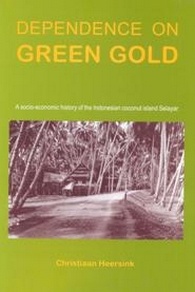Met ons alles goed: Brieven en films uit Nederlands-Indië
Description
De manier waarop wij communiceren en de veranderingen daarin gaan zo snel dat het lijkt alsof er in de voorliggende decennia niets is gebeurd op dat gebied. Niets is echter minder waar. De veranderingen gingen dan wel niet zo snel, maar destijds waren ze op zijn zachtst gezegd revolutionair. Telex, fax, snellere schepen, radio, telefoon en vliegverkeer betekenden steeds een gigantische tijdswinst en hadden een enorme impact op het dagelijks leven van onze voorouders. Een unieke bron die verschillende ontwikkelingen in de communicatie bij elkaar brengt wordt gevormd door de correspondentie en de films van de familie Kuyck, die tussen 1924 en 1930 in Indië verbleef. De brieven geven een buitengewoon mooi beeld van de koloniale verhoudingen, de sociale beslommeringen en de voorbereidingen op de thuiskeer. De correspondentie heeft een extra dimensie omdat het ook gaat over het contact met het thuisfront en hoe dat wordt beïnvloed door de ontdekking van de mogelijkheden om met film te communiceren, de komst van de radio (waar de echtgenoot bij betrokken is), telefoon en de vliegverbinding. De correspondentie en de films zijn op zichzelf al de moeite waard, maar gecombineerd leveren zij een ongekende meerwaarde op. In het boek en de bijbehorende documentaire op DVD worden de woorden die Rien Kuyck destijds schreef na een kleine 80 jaar verbonden aan de filmbeelden van haar man Gerhard. De Indische Bibliotheek richt zich op de uitgave van ego-documenten op het gebied van de Indisch/Indonesisch-Nederlandse geschiedenis. Nowadays, changes in the way we communicate occur at a high pace. This creates the faulty impression that preceding decades saw little changes in that regard. In the past, changes may not have been as swift, but to earlier generations they appeared revolutionary nonetheless. Telex, fax, faster ships, radio, telephone and aviation resulted in enormous savings in time and had a huge impact on daily life. A unique example of such influences, tying together various developments in the field of communication, can be found in the correspondence and home movies of the Kuyk family, who stayed in the Dutch East Indies between 1924 and 1930. The letters provide sharp images of colonial society, the social interactions and the preparations for the home journey. This correspondence has an additional dimension because it portrays the ways in which contacts were maintained with the home front, and in what ways this communication was influenced by the use of home movies, the arrival of the radio (in which the husband is actively involved), telephone and aviation services. The correspondence and movies are interesting in and by themselves, but combined they have substantial additional value. The book and the accompanying documentary on DVD provide a connection to explore the words of Rien Kuyk to her husband Gerhard (‘Met ons alles goed’) 80 years after they were entrusted to paper. The publication opens with an essay on the history of communication between the Dutch East Indies and the Netherlands. The introduction examines the correspondence of the Kuyk family in detail. Extensive excerpts from Rien Kuyk’s letters are presented, together with stills from Gerhard’s movies and photographs from the family archives. The ‘Indische Bibliotheek’ is a series of published ego documents, deriving from the history of the Dutch East Indies. Fridus Steijlen is researcher at the KITLV, Erik Willems is film maker.
Additional Information
| Edition | |
|---|---|
| Pages | |
| Illustrations | |
| authors | 370 |







